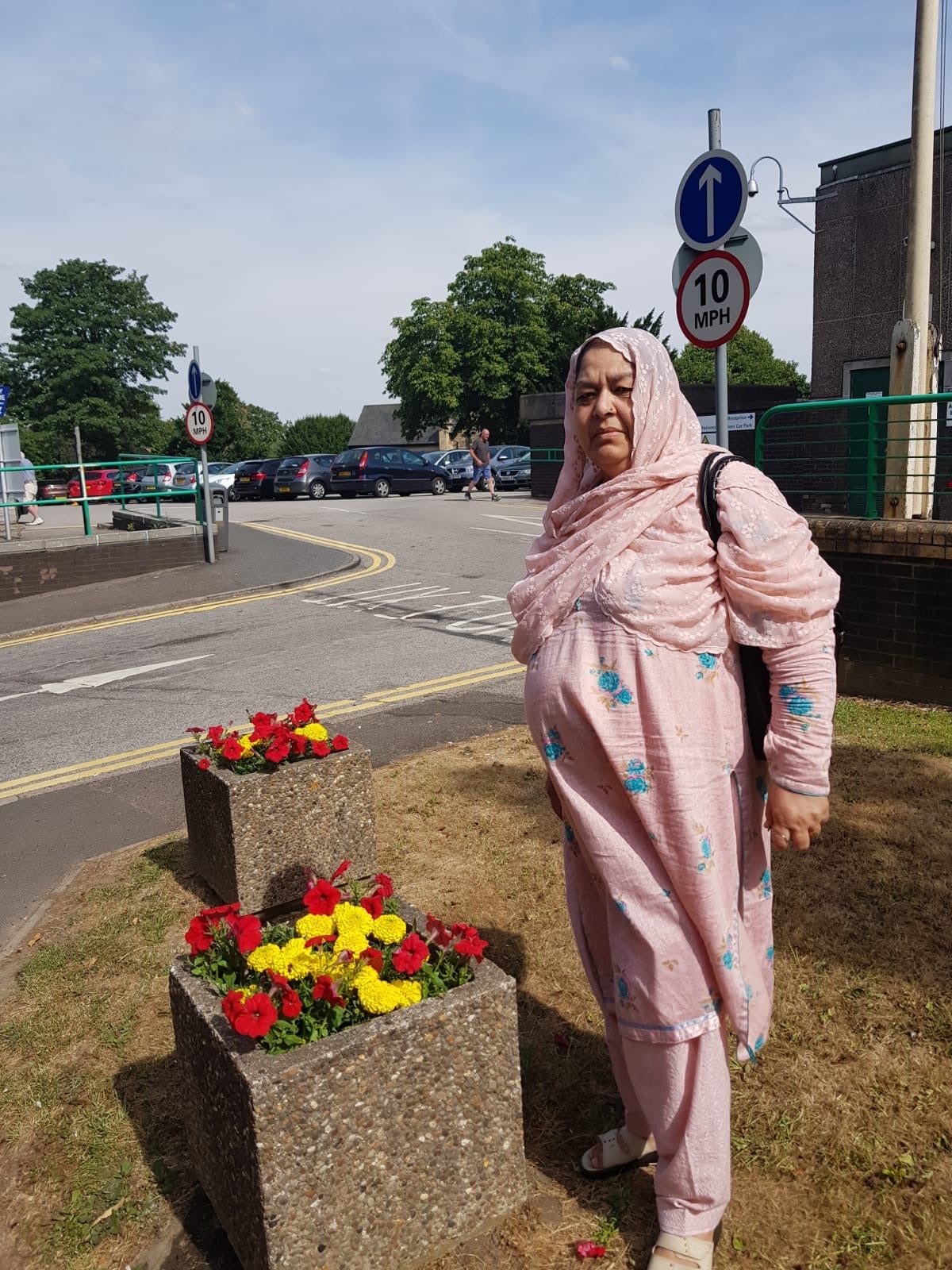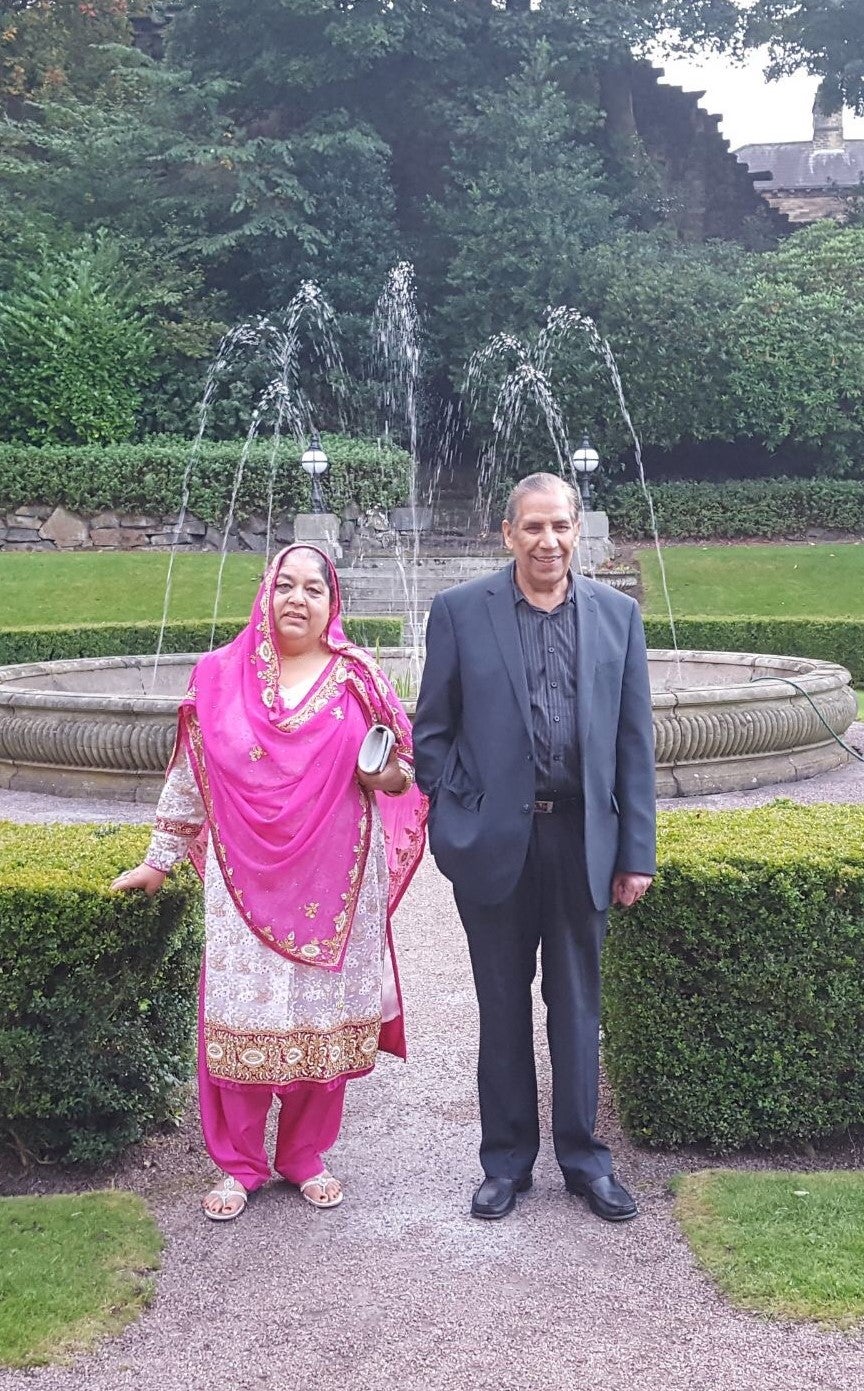Smart motorway system ‘dangerous and flawed’, inquest told
Nargis Begum died on a stretch of the M1 with no hard shoulder.

Your support helps us to tell the story
From reproductive rights to climate change to Big Tech, The Independent is on the ground when the story is developing. Whether it's investigating the financials of Elon Musk's pro-Trump PAC or producing our latest documentary, 'The A Word', which shines a light on the American women fighting for reproductive rights, we know how important it is to parse out the facts from the messaging.
At such a critical moment in US history, we need reporters on the ground. Your donation allows us to keep sending journalists to speak to both sides of the story.
The Independent is trusted by Americans across the entire political spectrum. And unlike many other quality news outlets, we choose not to lock Americans out of our reporting and analysis with paywalls. We believe quality journalism should be available to everyone, paid for by those who can afford it.
Your support makes all the difference.The family of a grandmother who died on a stretch of the M1 with no hard shoulder believe the smart motorway system is “dangerous and flawed”, an inquest has heard.
Nargis Begum was the passenger in a Nissan Qashqai car, driven by her husband, which broke down near Woodall Services, South Yorkshire, on 9 September 2018.
Previous hearings have heard the 62-year-old mother-of-five had got out of the car and was waiting for help when a Mercedes collided with the Nissan, causing it plough into her.
On Tuesday an inquest at Doncaster Coroner’s Court heard Ms Begum and her husband, Mohammed Bashir, 69, were driving from Derby to their home in Darnall, Sheffield, when the car “suddenly” dropped speed.
The hearing was told the couple had borrowed the car from their daughter, Saima Aktar, 40, as Ms Begum suffered from arthritis and preferred her vehicle as it had more space.
A statement from Mr Bashir, read by counsel to the inquest Bridget Dolan QC, said that shortly after passing the service station the car started to lose speed, so he tried dropping down to the lowest gear, and then trying to start it up again.

Taxi driver Mr Bashir said he then “brought the car to a standstill in what I thought was the hard shoulder but was actually a live lane”.
His statement said he put his hazard warning lights on and the couple got out of the car.
The inquest heard Mr Bashir climbed over the barrier and called his daughter to ask about the car’s recovery documents, but Ms Begum was unable to get over the barrier as it was too high.
Mr Bashir said when he looked back at the car he could not see his wife, and assumed she had gone to cross the barrier at another point further along the road.
His statement said that as he was going back to the car to get the recovery details, another car hit the Nissan Qashqai he had been driving, adding that “all I could hear was the horrendous impact”.
Mr Bashir said there was then a second impact as another car hit the vehicle that had crashed into them.
The inquest heard he then saw Ms Begum lying on the ground.
Mr Bashir said in his statement: “I don’t want to describe what I saw as it is still too upsetting.”
This accident has broken our family but we are united in not wanting this to happen to another family
He told police that until this incident he was “unaware of any changes to the Highway Code, nor the fact that the motorway had changed to a smart version”.
A statement from the couple’s daughter, Saima Aktar, said she had been on her way to pick her parents up after learning about the crash when she called Mr Bashir, who said: “Sweetheart, the situation has changed, there’s been an accident and your mum’s been hurt.”
Ms Aktar added: “This accident has broken our family but we are united in not wanting this to happen to another family.
“We all believe the smart motorway system is dangerous and flawed – if there had been a hard shoulder my dad would have ended up there.”
The inquest heard the driver of the Mercedes, Kantrimas Zukauskas, who was initially arrested on suspicion of causing death by dangerous driving, had refused to give evidence at the hearing.
Ms Dolan read from a transcript of Mr Zukauskas’ interviews with police, in which he said: “I just don’t know how I did it, that’s all. If I hit it, I didn’t see it.”
The inquest heard evidence from another motorist, Mark Sheriff, who told the inquest he was passing the broken-down vehicle when he saw a car behind him “coming at a speed – about 90mph”.
He said: “It went straight across the front of me, no brake lights, and the next thing I knew were just an almighty smash. There was debris all over the road.”
Ms Aktar also read a pen portrait of her mother to the hearing, describing her as “the best mum in the world”.
“From the moment she arrived in this country in the mid-70s (from Pakistan), her presence was known and felt significantly,” she said.
“She was the most caring, loving and selfless person I knew. She had time for everyone.
“Losing our mother is the most painful and difficult thing we have ever experienced in our lives.
“To have her taken from us the way she was has been immensely traumatic for each and every one of us.”
Last year senior coroner Nicola Mundy asked South Yorkshire Police to consider whether Highways England should face corporate manslaughter charges over Ms Begum’s death.
In February, the force said the organisation, now renamed National Highways, will not be charged after Crown Prosecution Service advice that it did not owe road users a “relevant duty of care” under the terms set out in the Corporate Manslaughter and Corporate Homicide Act 2007.
The inquest continues.